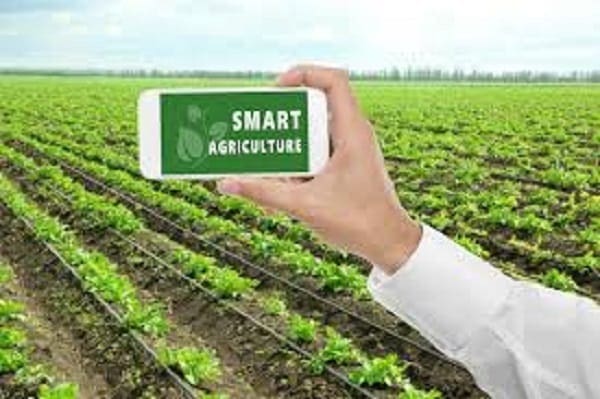Agriculture provides significant opportunities for empowering women both personally and for society at large. About 80% of the world’s food is produced by small-scale farming, with women comprising on average 46% of this agricultural labour in sub-Saharan Africa. The potential for female farmers to thrive is potent but requires, the same skills and financial opportunities afforded to male counterparts.
Transforming the face of agriculture
Targeted initiatives are needed that secure livelihood and empower young South Africans to be better placed to not only provide economically for themselves but give them a route to a fulfilling and secure occupation and healthy way of life.
To transform South Africa’s smallholding agricultural sector and create a more inclusive farming economy for young women, the Vodacom Foundation launched the Women Farmers Programme in 2018. The programme, launched in partnership with the United Nations Entity for Gender Equality and the Empowerment of Women and South African Women in Farming (SAWIF), aims to introduce women farmers to technology as a critical tool in agricultural business.
Cathy Mokgetlhe took part in the Women Farmers Programme in February 2020, however, her passion for farming began as a child when she would assist her parents and grew when she joined her mother in the SAWIF youth wing.
“I am always taking a hands-on approach to my farming business, always learning new things and increasing my skills and that increases the love and passion of what I am doing,” says Mokgetlhe.
While in the Women Farmers Programme Mokgetlhe learned more about creating a business plan, calculating profits, conducting business feasibility, cash flow management to better streamline her business operations.
“Being a part of the programme helped me with focusing on my business and making it work as a young farmer. I can work out my finances and market my business in different aspects,” says Mokgetlhe.
“It has changed how I operate my business, as I can now use technology as my marketing strategy and keep a better record of my day-to-day activities,” she adds.
Kone Maswanganyi, a farmer based in the Limpopo province, became interested in farming at a young age and joined SAWIF, an organisation her mother was a part founder of. “My main focus is blueberries however, I also have started a nursery growing various flowers and plants.”
“What is so fulfilling is seeing all your hard work pay off,” says Kone. “You really learn to appreciate food and learn a lot of patience. But once you have completed a harvest and taste what you have grown yourself, it is all worth it in the end,” says Maswanganyi.
Overcoming gender stereotypes
According to the UN’s Food and Agriculture Organisation, growth in small-scale agriculture is two to four times more effective at reducing hunger and poverty than any other sector, and women farmers are playing a central role.
Yet, little action has been taken to ensure that they have the resources they need to improve their livelihoods, tackle food insecurity and build their communities’ resilience to climate change. “At times we become frustrated when we are turned down in institutions like banks, land banks as an example but afterward you hear that a male was approved on what you were disapproved on,” says Maswanganyi.
However, these challenges did not stop her from pursuing her dream and continuing to work on her skills and networks. “Working with women especially organised women like the SAWIF assisted me to belong and to be confident in a male-dominated sector. With an established youth wing within SAWIF, we exchange ideas of improving our products, when there is an opportunity, we share that amongst ourselves,” she adds.
“Being a part of SAWIF exposes you to a lot of powerful women who have become role models to me. I try to follow their example, which makes me feel empowered when working in a very male-dominated sector,” says Maswanganyi.
Encouraging the next generation
“If you want to get into farming, you have to start somewhere! Get a pot and plant your seeds. Start getting to know your crop and the factors around you. Connect with other farmers around you and start learning from them. You just have to start,” says Mokgetlhe
Moving forward, Vodacom Foundation Women Farmers Programme is committed to meeting the needs of women farmers so that they can contribute successfully and equally to the agriculture economy. With the full suite of services, as well as the knowledge and skills learned through the training, women farmers can be empowered to reap the benefits of using technology to scale their farming business.
“I advise young women, who want to follow an agricultural career to do so as it is one of the sectors that will help improve South Africa’s economy. This is also a career that has endless opportunities for young women, especially in Agro-processing,” says Mokgetlhe.
